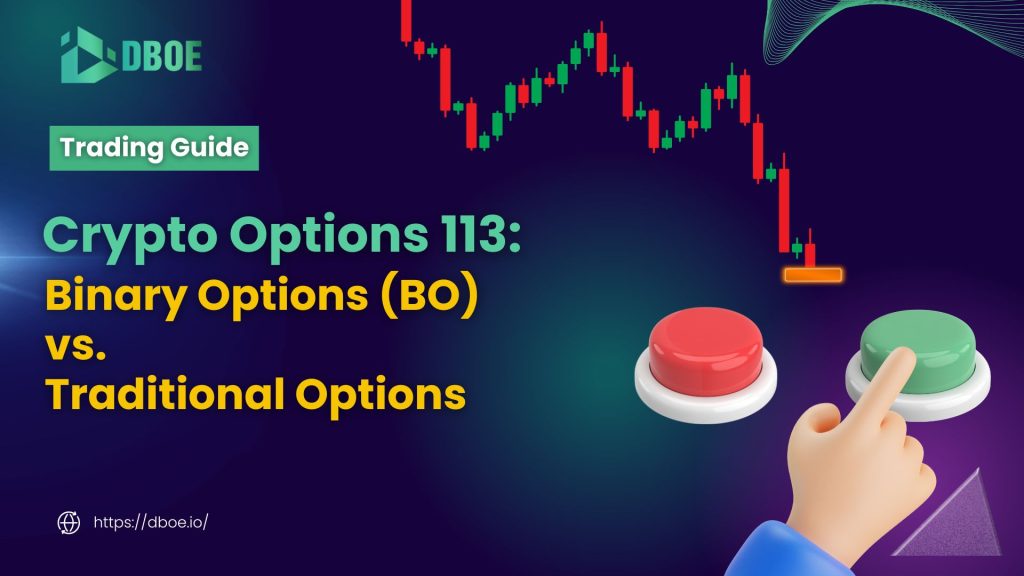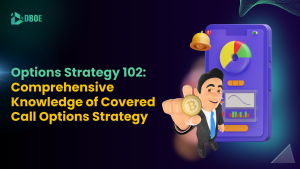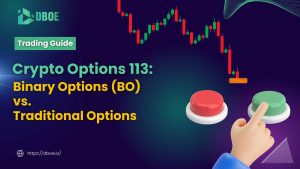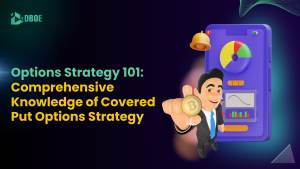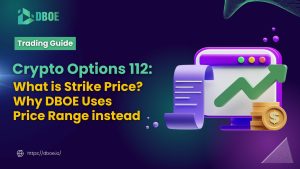While binary options and traditional options may seem similar at first glance, they cater to different types of traders with varying levels of expertise and risk tolerance. Binary options are the “quick and dirty” choice—simple and fast, but they’re a “double-edged sword,” carrying high risks and often flying under the radar of regulation. It’s a bit like “playing with fire”—you might get lucky, but more often than not, you’ll get burned.
On the flip side, Traditional Options offer more sophisticated trading opportunities and are generally safer due to the regulatory framework. For most investors, traditional options are likely the better choice, provided they are willing to invest the time to understand how they work.
What are Binary Options?
Binary Option is considered a type of financial derivative where the payoff is either a fixed amount or nothing at all. In binary options trade, the investor bets on whether the price of the crypto will be above or below the closed price of the previous candle at a specific time (the closed price of the next candle). Ideally, binary options usually expire very quickly, no more than an hour in order for users to make immediate profit but in reality, this feature is more likely to give immediate bankruptcy.
Example: Imagine you place a bet of $100 on “UP” in a 5-minutes chart, your entry will be the closed price of the previous 5-minutes candle and the result will be based on the closed price of the next 5-minutes candle.
If the candle close above entry: you will receive a fixed amount = $100 – fees (no matter how far above the price pumped)
If the candle close below entry: you will lose your entire $100 bet no matter how far below the price sinked)
The name “binary” comes from the fact that there are only two possible outcomes: win or lose.
Due to the simplicity of Binary Options (BO), many scam BO platforms have emerged under various disguises, often labelled as options. This has led to a common misconception that BO is the same as traditional options, causing people to lose trust in options.
Therefore, users should be cautious and thoroughly research before trading BO, choosing a reliable and trustworthy platform. Additionally, users should clearly distinguish between BO and traditional options to gain a deeper understanding of the nature of options.
What about Traditional Options?

On the other hand, Traditional Options are contracts that give the holder the right, but not the obligation to buy or sell crypto at a specified price (strike price) at the contract’s expiration date. There are two primary types of traditional options: call options (which give the holder the right to buy) and put options (which give the holder the right to sell). If you don’t wish to short your options contract, the potential loss is fixed at a premium price but the potential profits are unlimited based on the price difference between the strike price and the market price of the crypto at the time of expiration.
Example: If you buy a call option on Bitcoin with the strike price of $52,000 you will lose a premium upfront to the options seller.
If the price of Bitcoin rises above strike price: Bitcoin price in expiration reaches $54,000 you will receive a profit of 54,000 – 52,000 – premium = $2000 – premium (the premium will be based on the price of Bitcoin at the time of option’s purchase and the time of the option contract until expiration).
If the price of Bitcoin sinks below strike price: Bitcoin price in expiration sinks to 48,000 and your option will be considered worthless. But no matter how far below Bitcoin’s price sinks, you will only lose the premium that you paid the option seller at start.
What are the Key Differences?
People often get confused by these two, the confusion between binary options and traditional options often arises from their similar naming conventions and the fact that both involve speculating on the future price of an asset. However, the similarity largely ends there. Binary options are often marketed as a simpler, more accessible alternative to traditional options, with claims of easy profits and lower barriers to entry. This marketing strategy, combined with the use of the term “options,” can lead novice traders to assume that binary options are just a simpler form of traditional options, which is far from the truth.
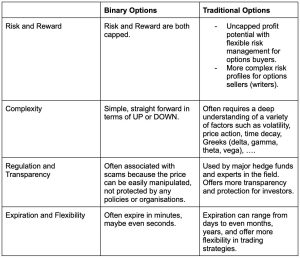
Which is Better?
This answer depends on the investor’s goals, experience, knowledge and risk tolerance.
Binary options might be appealing for those seeking a simple derivative, a quick way to bet on market movements without knowledge or capital. However, as the saying goes, “If it sounds too good to be true, it probably is.” Predicting price movements in a matter of minutes or even seconds is like trying to catch lightning in a bottle—near impossible for the average retail investor unless they’re privy to inside information, which is about as likely as finding a needle in a haystack.
While Traditional Options is more complex, requires more knowledge and experience but on the other hand it also offers more strategic flexibility and potential for unlimited returns.
So, while binary options might be the “flash in the pan” of the financial world, traditional options are where the real, long-term opportunities lie. Just remember, “Fools rush in where angels fear to tread.” However it’s better suited for experienced investors who understand the intricacies of the options market and have a large capital as most options exchanges require a high capital entry.
Recognizing these disadvantages, DBOE has established advanced solutions to enhance users experience in options trading in order to make options more accessible for newcomers:
- CLOB (On – chain Order Book): ensure transparency and fairness, increase security.
- Price Range: Help investors to manage their risk more effectively
- Lowest requirements: Investors can start buy and sell their options from just $0.5
Start your options trading journey with DBOE today at: https://dboe.exchange/
or https://download.dboe.exchange/ on mobile
Disclaimer: The information in this article is not intended as investment advice. Cryptocurrency investment activities are not legally recognized or protected in some countries. Cryptocurrencies always involve financial risks.

